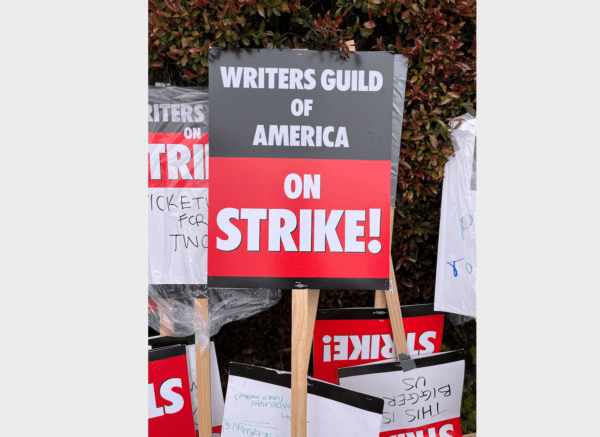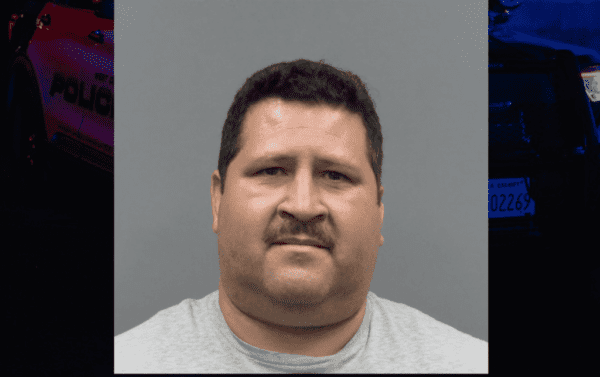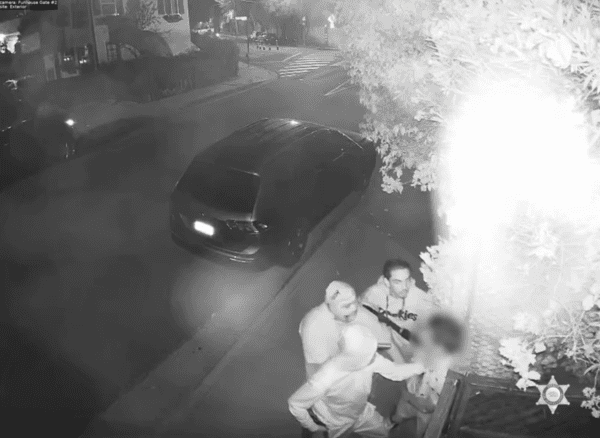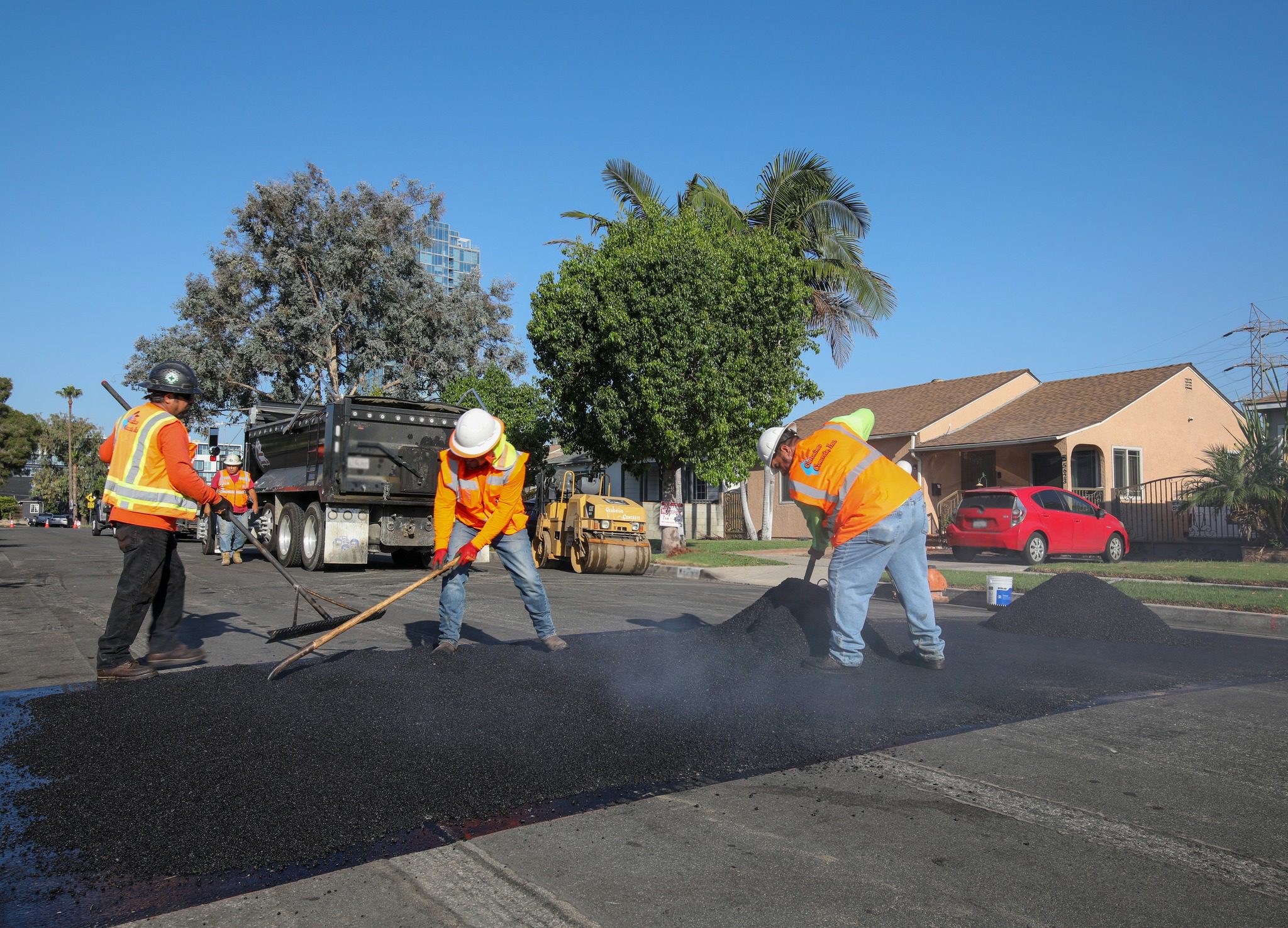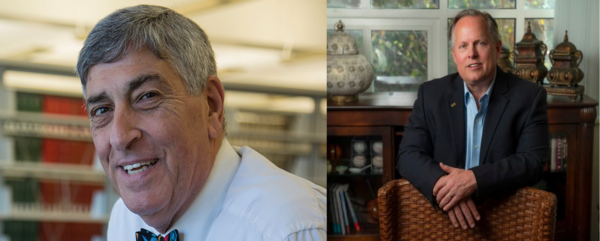Negotiators for the striking Writers Guild of America and representatives of Hollywood studios met Friday to discuss a possible resumption of labor talks in hopes of resolving the three-month work stoppage that has ground most production to a halt.
However, sources close to the negotiations who were not authorized to comment told the Los Angeles Times that Friday’s meeting did not go well and that there was little progress in resolving deep differences between the two sides.
The session ended with the both sides “agreeing to go back to their respective camps to evaluate options,” according to the Times. It was not clear if and when talks might resume.
The Alliance of Motion Picture and Television Producers — which represents studios in the contract negotiations — and the WGA declined to comment.
Thousands of striking writers and their acting counterparts from SAG-AFTRA descended on the North Hollywood/Studio City area Friday to hold a massive picket outside Universal Studios that temporarily shut down traffic on Lankershim Boulevard.
There were no reports of any arrests or disturbances associated with the picket line.
The WGA announced Tuesday that it had been contacted by the AMPTP and a meeting was set for Friday to discuss a resumption of talks, which have not occurred since writers went on strike May 2. By late afternoon Friday, no update had been provided from either side about the meeting.
Los Angeles Mayor Karen Bass issued a statement Friday afternoon urging a full resumption of contract talks so a “fair and equitable” resolution can be reached to resolve strikes that continue “to have profoundly negative impacts on our economy and many of our community members.”
“The impact has spanned every corner of Los Angeles — from the writers and actors on the picket line trying to make ends meet to keep a roof over their head and food on the table, to businesses who rely on the entertainment industry,” Bass said.
“The economic conditions of the entertainment industry are changing — and we must react and evolve to this challenge. It is critical that this gets resolved immediately so that Los Angeles gets back on track and I stand ready to personally engage with all the stakeholders in any way possible to help get this done.”
Gov. Gavin Newsom also recently offered to get involved in the discussions. There’s been no indication of whether Newsom or Bass will be invited to help broker a deal.
The writers union and studios exchanged some harsh words on Thursday, pointing to continued animosity.
The WGA negotiating committee sent an email to its members Thursday challenging studios to abandon an “anti-union playbook” and come prepared to offer a fair deal. The studios shot back, calling the striking writers’ union rhetoric “unfortunate,” insisting its “only playbook is getting people back to work.”
In its Thursday message to union members, the WGA negotiating committee praised writers’ resolve and blasted suggestions the walkout was having limited impact on studios due to content stockpiles held by streaming services, and that a protracted strike might be “good for the companies financially” because they can “write off their losses.”
“This is calculated disinformation about the real impact of the ongoing strikes,” according to the WGA statement. “We have shut down production. Union writers and actors are so essential in this industry that the companies cannot even attempt to do the work without us. It is not a viable business strategy for these companies to shut down their business for three months and counting no matter how much they try and pretend it is.”
The negotiating committee warned the AMPTP not to repeat tactics of the 2007-08 writers strike, which the union contends was an effort to “spread dissent” through the media.
“We won’t prejudge what’s to come. But playbooks die hard,” according to the WGA statement. “So far, the companies have wasted months on their same failed strategy. They have attempted, time and time again, through anonymous quotes in the media, to use scare tactics, rumors and lies to weaken our resolve. …
“Therefore, we challenge the studios and AMPTP to come to the meeting they called for this Friday with a new playbook: Be willing to make a fair deal and begin to repair the damage your strikes and your business practices have caused the workers in this industry.”
The AMPTP issued a statement in response, saying Friday’s discussion with the WGA “is to determine whether we have a willing bargaining partner. The WGA bargaining committee’s rhetoric is unfortunate.”
In a statement Thursday AMTP officials said, “This strike has hurt thousands of people in this industry, and we take that very seriously. Our only playbook is getting people back to work.”
The rhetorical salvos cast a shadow over Friday’s planned meeting, which some observers saw as a possible break in the labor stalemate that has effectively halted most studio production.
The WGA is pushing for improvements on a variety of fronts, notably for higher residual pay for streaming programs that have larger viewership, rather than the existing model that pays a standard rate regardless of a show’s success.
Striking writers are also calling for industry standards on the number of writers assigned to each show, increases in foreign streaming residuals and regulations preventing the use of artificial intelligence technology to write or rewrite any literary material.
The AMPTP has pushed back against some of the WGA’s demands, particularly around its calls for mandatory staffing and employment guarantees on programs. AMPTP has also pushed back against WGA demands around streaming residuals, saying the guild’s offer would increase rates by 200%.
The use of artificial intelligence has emerged as a major topic. The WGA says it wants a ban on the use of AI, and contends the AMPTP has refused to even negotiate the issue. The AMPTP said the issue raises “important creative and legal questions” and requires “a lot more discussion, which we’ve committed to doing.”
SAG-AFTRA, the union representing 160,000 actors, went on strike July 14, joining striking Writers Guild of America members. The double-barreled strike is the first time in 63 years both unions have walked off the job simultaneously.
The SAG-AFTRA negotiating team issued a statement in July outlining the key issues in the dispute and insisting that the AMPTP “wouldn’t meaningfully engage on the most critical issues.”
The SAG-AFTRA list included the core demands of general wage increases, protections against the use of actor images through artificial intelligence, boosts in compensation for successful streaming programs and improvements in health and retirement benefits.
The AMPTP last month accused SAG-AFTRA of ignoring a contract offer the studios valued at more than $1 billion in wage increases, pension and health contributions, along with residual increases and protections regarding the use of artificial intelligence. SAG-AFTRA officials have disputed the nature of that offer.

